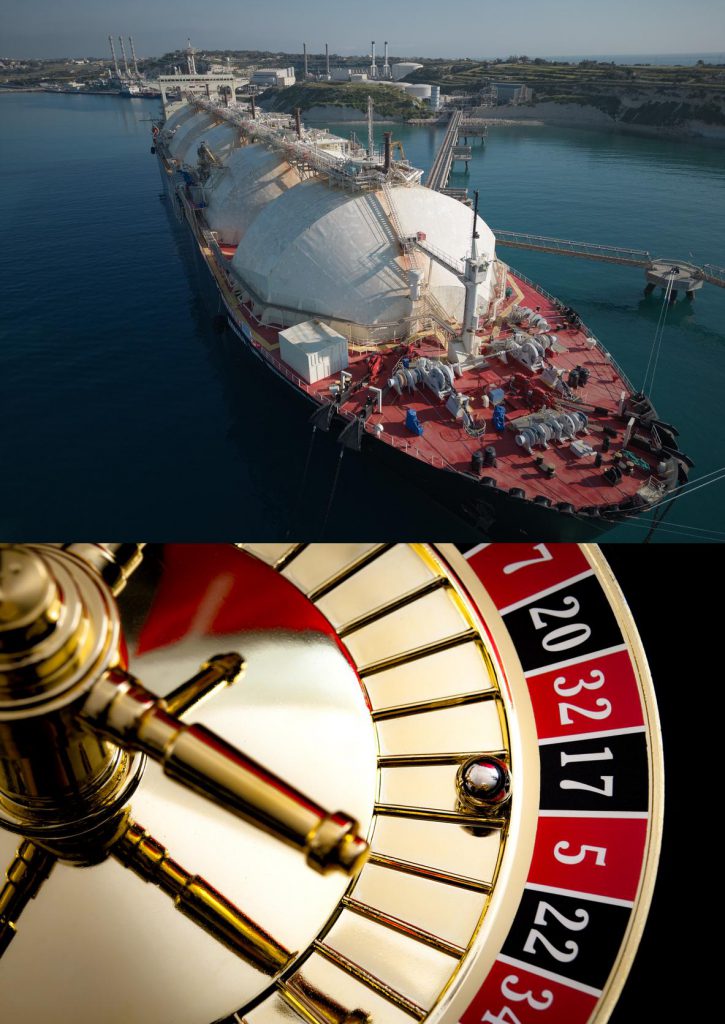Here we go again…

Eight years after a cryptic post by journalist Daphne Caruana Galizia who for the first time had mentioned 17 Black, this saga is back on Malta’s agenda. It recently transpired that the inquiry launched into allegations that this Dubai-based company was used for kickbacks in the Electrogas power station project has been concluded. Undoubtedly, the fact that this process took years to be completed leaves much to be desired, but as the saying goes it is better late than never.
Though the conclusions of this inquiry have not been made public, reports it is recommending criminal charges against former Energy Minister Konrad Mizzi and Keith Schembri – the former aide of Prime Minister Joseph Muscat – have note been denied. If this were to be the case it would vindicate the decision taken by former Nationalist Party leader Simon Busuttil, who in July 2017 – a month after being trashed at the polls in what had been interpreted in some quarters as a death sentence against his anti-corruption crusade – had famously submitted the box files full evidence to back his call for the launching of this inquiry. It also turned out that the premature 2017 general election failed to whitewash the 17 Black scandal. After all, one can only be absolved of any criminal act by a court, and not at the polls.
On a political level, however, the ramifications would be far beyond Busuttil’s vindication to stand his ground. Mizzi and Schembri are no ordinary names within Labour circles. While Mizzi piloted the power station project in the 2013 election campaign and remained at the helm until the Panama Papers scandal emerged, Schembri was the brains behind the electoral, organisational and political machine. Moreover, Mizzi was also politically responsible for the infamous €400 million Vitals and Steward scandalous deal. Let us not forget that he was after all Energy and Health Minister – a rather bizarre portfolio which combines two completely different sectors having no common denominator, or at least that is what everyone thought.
Attempts by the Labour government to dissociate from these two key figures of the Joseph Muscat administration, look hollow and ultimately will only highlight their state of panic on the matter. This was no ordinary case of maladministration or oversight but evidence so far suggest this was a premeditated plan to make a quick buck, which was allegedly rolled out within days of the Labour administration being elected to government in 2013.
Nevertheless, Mizzi and Schembri were only shown the exit door when the air became so toxic that it was threatening the future of the Labour government. After all the magisterial inquiry was only launched on the initiative of the likes of Simon Busuttil, David Casa and NGO Repubblika rather than the police or the FIAU.
The third magisterial inquiry of the kind…
This could be the third time that serious corruption charges will be brought against high profile members of the labour government – in 2021 it was against Schembri, Mizzi and others following the conclusion of two magisterial inquiries on alleged kickbacks paid on the sale of passports and on the purchase of printing equipment by Progress Press. Those criminal proceedings are still ongoing.
The second was in May last year when charges were brought not only against Schembri and Mizzi but also against Muscat himself, as well as other ministers and civil servants, following another magisterial inquiry requested by Repubblika on the privatisation of public hospitals.
Looking ahead, there seems to be consensus even between the two rival political leaders – at least judging by their public declarations – that the contents of the 17 Black inquiry should be revealed. Worryingly though, Prime Minister Robert Abela has also hinted he wants to abolish citizens’ rights to trigger magisterial inquiries. Yet, without that right, none of the scandals would have been exposed.
Systematic failures need to be addressed
The 17 Black saga underscores the profound and enduring consequences of corruption on Malta’s political and social fabric. While the inquiry’s recommendations, if confirmed, may represent a critical step toward accountability, they also lay bare the systemic failures that allowed such alleged schemes to flourish unchecked for years. This moment is a sobering reminder of the importance of robust institutional safeguards, independent oversight, and the unyielding determination of individuals and civil society to uphold justice.
The focus must shift toward ensuring transparency, enforcing accountability, and preventing history from repeating itself. Reforms that diminish the public’s ability to demand investigations risk perpetuating impunity, eroding trust in governance, and undermining democratic principles. The path forward lies not only in reckoning with past wrongs but also in strengthening the mechanisms that empower citizens to hold those in power accountable, safeguarding Malta’s democracy for future generations.
